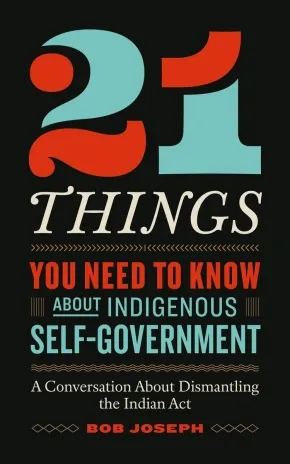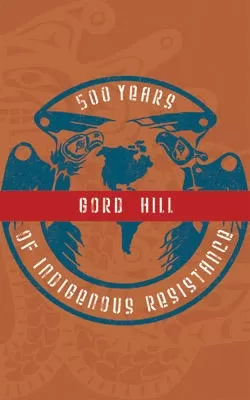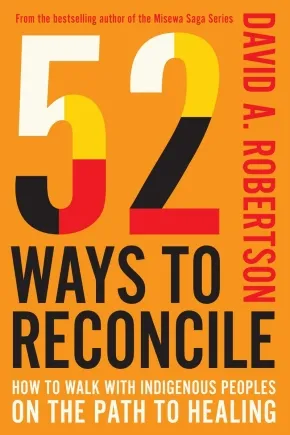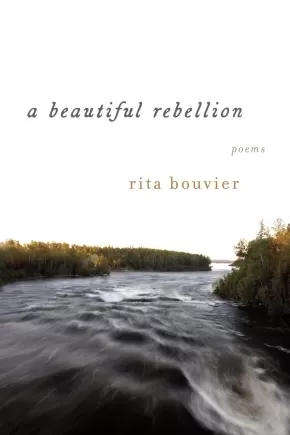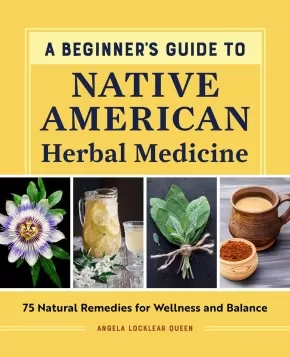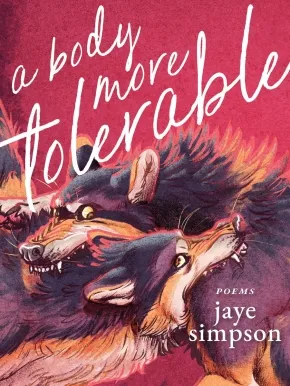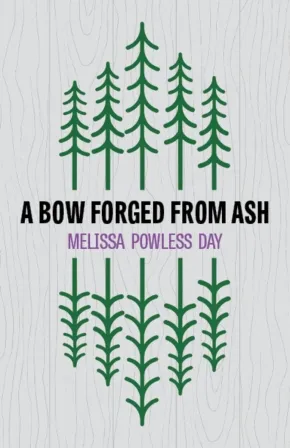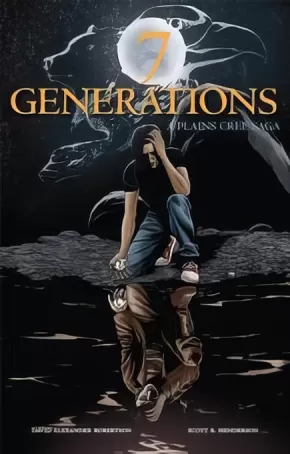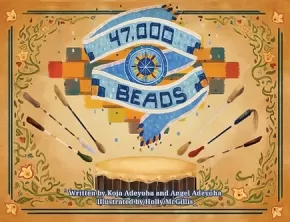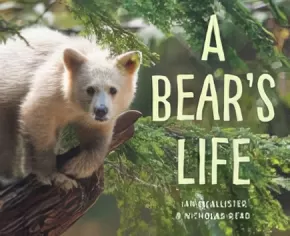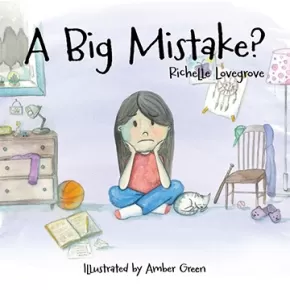English
Books (10)
Synopsis:
From the bestselling author of 21 Things™ You May Not Know About the Indian Act comes a powerful new book on dismantling the Indian Act and advancing Indigenous self-governance.
Bob Joseph’s 21 Things™You May Not Know About the Indian Act captured the attention of hundreds of thousands of Canadians by shining a light on the Indian Act and the problems associated with it. In that book, readers learned that the Consolidated Indian Act of 1876 has controlled the lives of Indigenous Peoples in Canada for generations, and despite its objective to assimilate Indians into the economic and political mainstream, it has had the opposite effect: segregation. They live under different laws and on different lands.
People came away from that book with questions such as "Can we get rid of the Indian Act?" and "What would that look like? Would self-government work?" These are timely questions, given that 2026 will mark 150 years since the Consolidated Indian Act of 1876. The short answer to these questions is, yes, we can dismantle the Act, and there are current examples of self-government arrangements that are working.
With his trademark wisdom, humility, and deep understanding, Bob Joseph shows us the path forward in 21 Things™ You Need to Know About Indigenous Self-Government: A Conversation About Dismantling the Indian Act, in which Indigenous self-governance is already happening and not to be feared—and negotiating more such arrangements, sooner rather than later, is an absolute necessity.
21 Things™ You Need to Know About Indigenous Self-Government: A Conversation About Dismantling the Indian Act is a call to action. Join the conversation now.
Additional Information
200 pages | 5.00" x 8.00" | Paperback
Synopsis:
A compact, user-friendly field guide to 50 of the most prominent and ecologically significant animal species of the west coast, from British Columbia to Northern California.
A keystone species is an organism that defines and supports an entire ecosystem, filling a vital ecological niche. Without these species, the ecosystem would be radically altered or even collapse. This pocket-sized field guide by bestselling naturalist Collin Varner highlights 50 keystone birds, mammals, amphibians, insects, fish, shellfish, and mollusks found across the Pacific Northwest bioregion—including the American Crow, Bald Eagle, American Beaver, California Sea Lion, Sea Otter, Orca, Coyote, Grizzly Bear, Giant Pacific Octopus, Chinook Salmon, Pacific Tree Frog, Pacific Banana Slug, Mixed Bumblebee, and more. Each entry features clear photography, etymology, descriptions, habitat information, risks and warnings. This convenient and easy reference is perfect for casual walkers, hikers, campers, beachcombers, sailors, paddlers, and whale watchers, and draws awareness to the importance of conservation and protection of these crucial species.
Reviews
“Collin Varner provides captivating information that will help keep his 50 keystone species in the back of every reader’s memory.”—Richard Beamish, CM, OBC, FRSC, retired Canadian scientist
“The perfect portable reference for wildlife watchers.”—Barbara J. Moritsch, ecologist and author of Wolf Time and The Soul of Yosemite: Finding, Defending, and Saving the Valley's Sacred Wild Nature
“Enriches our understanding of these critical species, empowering us to contribute to their conservation. A heartfelt thank you to Collin Varner for illuminating the path to environmental stewardship.”—Paul Nicklen, Canadian photographer and filmmaker and co-founder of SeaLegacy
“Whether you love the land, sea or air, you’ll find creatures in this book to delight and to inspire your protection. Varner’s focus on keystone species is very important as they play a significant role in keeping our ecosystems healthy. His images and information give you a beautiful glimpse into their lives.” —Cheryl Alexander, award-winning filmmaker and author of Takaya: Lone Wolf, Good Morning Takaya, and Takaya’s Journey
Additional Information
128 pages | 5.00" x 7.00" | Paperback
Synopsis:
A compact, user-friendly field guide to 50 of the most prominent and ecologically significant plant species of the west coast, from British Columbia to Northern California.
A keystone species is an organism that defines and supports an entire ecosystem, filling a vital ecological niche. Without these species, the ecosystem would be radically altered or even collapse. This pocket-sized field guide by bestselling naturalist Collin Varner highlights 50 keystone trees, flowering plants, fruit-bearing plants, marine plants, and fungi found across the Pacific Northwest bioregion—including Douglas Fir, Sitka Spruce, Large-leafed Lupine, Wild Mint, Salal, Salmonberry, Marine Eelgrass, Red-belted Polypore, and more. Each entry features clear photography, etymology, descriptions, habitat information, risks and warnings. This convenient and easy reference is perfect for casual walkers, hikers, campers, and beachcombers, and draws awareness to the importance of conservation and protection of these crucial species.
Reviews
"This beautiful book is a valuable addition to the library of anyone passionate about the flora of the Pacific Northwest. . . A refreshing way of exploring these incredible organisms." —Amanda Swinimer, author of The Science and Spirit of Seaweed
“A concise and essential guide for anyone curious about the essential plants of the coastal Pacific Northwest.”—Elizabeth Price, author of Native and Ornamental Conifers of the Pacific Northwest
"Like a keystone itself, this guide helps define an ecosystem: the forests and coasts of the Pacific Northwest. It is an indispensable companion for any ramble or expedition."—Harley Rustad, award-winning and bestselling author of Big Lonely Doug and Lost in the Valley of Death
Additional Information
128 pages | 5.00" x 7.00" | Paperback
Synopsis:
The history of the colonization of the Americas by Europeans is often portrayed as a mutually beneficial process, in which ”civilization” was brought to the Natives, who in return shared their land and cultures. A more critical history might present it as a genocide in which Indigenous peoples were helpless victims, overwhelmed by European military power. In reality, neither of these views is correct. This book is more than a history of European colonization of the Americas. In this slim volume, Gord Hill chronicles the resistance by Indigenous peoples, which limited and shaped the forms and extent of colonialism. This history encompasses North and South America, the development of nation-states and the resurgence of Indigenous resistance in the post-WW2 era.
Additional Information
72 pages | 8.50" x 5.50"
Synopsis:
From bestselling author of the Misewa Saga series David A. Robertson, this is the essential guide for all Canadians to understand how small and attainable acts towards reconciliation can make an enormous difference in our collective efforts to build a reconciled country.
52 Ways to Reconcile is an accessible, friendly guide for non-Indigenous people eager to learn, or Indigenous people eager to do more in our collective effort towards reconciliation, as people, and as a country. As much as non-Indigenous people want to walk the path of reconciliation, they often aren’t quite sure what to do, and they’re afraid of making mistakes. This book is the answer and the long overdue guide.
The idea of this book is simple: 52 small acts of reconciliation to consider, one per week, for an entire year. They’re all doable, and they’re all meaningful. All 52 steps take readers in the right direction, towards a healthier relationship between Indigenous and non-Indigenous people and a time when we are past trauma. By following these steps, we can live in stronger and healthier communities equally, and respectfully, together.
Additional Information
224 pages | 5.00" x 8.00" | Hardcover
Synopsis:
Timely, important, mischievous, powerful: in a word, exceptional.
Seventy-seven poems intended as a eulogy for what we have squandered, a reprimand for all we have allowed, a suggestion for what might still be salvaged, a poetic quarrel with our intolerant and greedy selves, a reflection on mortality and longing, as well as a long-running conversation with the mythological currents that flow throughout North America.
Additional Information
96 pages | 6.00" x 9.00"
Synopsis:
This evocative new poetry collection speaks with a fierce tenderness of many aspects of the poet’s life: a childhood spent on the banks of the Churchill River, the death of a beloved one, the struggle to try to find forgiveness for wrongs done and the weariness of trying to redress those wrongs. And, most poignantly, a beautiful rebellion reaches one hand back to Louis Riel and one hand forward to future Métis generations.
The poems navigate losses that we all suffer when the world of our childhoods has altered irrevocably; they reveal the pain caused by residential schools and share despair at the lack of progress in social justice and self-determination. Rita Bouvier’s work is intimate and insightful, written in inviting, open-hearted language that includes many Cree and Michif phrases and their translation.
There is a quiet power--riverine, deep, unstoppable--that flows through these words.
Additional Information
72 pages | 6.00" x 9.00" | Paperback
Synopsis:
Improve your well-being with Native American herbal medicine
Native American herbal medicine offers a powerful way to connect with the earth and heal naturally—and with this handbook of Native American herbs, you can learn all about herb uses and their restorative effects. Written by an Indigenous herbalist, this guide shows you how to responsibly use traditional plants to treat anxiety, colds, inflammation, and more.
This standout among books about herbs and healing will help you:
- Learn about a time-honored practice—Discover the origins and healing secrets of Native American herbalism, its traditional and modern uses, and how tools like the medicine wheel teach us about our relationship with the natural world.
- Identify the essential herbs—Explore the healing properties of medicinal herbs for wellness, from anise hyssop to yerba santa.
- Make 75 natural remedies—Ease physical and emotional ailments with Native American remedies, like Memory Support Tea, Stress-Induced Headache Tincture, and Antibacterial Healing Herb Liniment.
Tap into traditional wisdom with this Native American herbal medicine book for health and well-being.
Reviews
"A beautiful jumping-off point for anyone who is interested in practical herbalism. Angela organizes the wisdom of Native American herbalism in a way that is accessible for anyone to pick up and fold into their everyday life." —Kathleen Lee, acupuncturist, herbalist, and spiritual business mentor
"Angela is a wise and fierce protector of plant medicine and traditions of healing. Her first book, A Beginner's Guide to Native American Herbal Medicine, is a meaningful, accessible resource for readers who seek to ground themselves in understanding and build an herbal practice of integrity." —Graham Wesley
Additional Information
165 pages | 7.50" x 9.25" | full-colour photographs throughout | Paperback
Synopsis:
Ferocious and vulnerable poems about redefining acts of creation, destruction, deconstruction, and recreation, from a singular Indigiqueer point of view
a body more tolerable is a collection of powerful and haunting poems combining faerie tales, mythology, and a self-divinized female rage. Divided into three parts, the book examines Indigenous grief, trans identity, and frustrated desires in ways that reject perception. Gone is the soft, kind, gentle girl that author jaye simpson once thought she would become. Instead, she unravels the sticky threads of colonialism with poems that exact lyrical acts of self-surgery.
In these visceral poems, teeth gleam, graze skin, and sink into flesh, becoming bloodied and exposing the animalistic hunger that lies within. Pulsating with yearning and possibility, a body more tolerable is a book that resists typical notions of physicality and sex to dream of a world more divine. It is a call-out into the canon for a new age, one filled with retribution and recompense.
Reviews
"jaye simpson's a body more tolerable is a singular achievement. Her poetic project, at once forward-dawning and ancestral, both revolutionary and decolonizing, is given total expression in this book. These poems moved me immensely; there is so much beauty and feeling power in all of them. No one is writing like jaye simpson." -Billy-Ray Belcourt, author of A Minor Chorus and Coexistenc
"a body more tolerable is a work at once open and lyric, fearless and tender. Expanding grief's territory into moments of relation and desire, simpson also challenges "home, as a wayward theory" into a poetics of self-mothering, of being beyond becoming. This collection is a fierce and resistant nurturing." -Liz Howard, author of Infinite Citizen of the Shaking Tent and Letters in a Bruised Cosmo
"jaye simpson is one of the most compelling and incisive voices of their generation. In a body more tolerable, they seize the English language and command it into an instrument that meticulously sings the realities of their present moment. I found solace, fire, and a relentless love for living and loving in these poetic offerings. a body more tolerable is a wayward map, and it is gorgeous. I'll carry it close to my heart." -Leanne Betasamosake Simpson, author of Noopiming: The Cure for White Ladies
"i can't retire this tongue," jaye simpson writes in a sophomore collection that creeps, howls, floats, shatters. an Indigenous speaker grapples with survival, the foster care system, the body, conceptions of motherhood, and trans girlhood in this heart-wrenching leap that returns what is most precious to us through lush language and keen lyricism. each poem is a portal of longing, ferocity, softness. i can't recommend it enough." -Kinsale Drake, National Poetry Series-winning author of The Sky Was Once a Dark Blanket
Additional Information
88 pages | 6.00" x 8.00" | Paperback
Synopsis:
A Bow Forged from Ash is a journey of Indigenous reclamation. In poems that explore identity, belonging, responsibility and wholeness, Melissa Powless Day navigates her ties to the landscapes of Southwestern Ontario and the nations to which she belongs. Traversing lived experience, ancestral memory, family stories, and critical engagements with the Land, Powless Day pulls back the bow of language: her poems are poised, unyielding in their nanda-gikendang, their seeking, to voice complex stories about the messiness of returning home, a restoration of familial and community bonds generations in the making. Ultimately, A Bow Forged from Ash is a book that proves reclamation and resistance are inseparable: one cannot walk with pride in their Indigeneity without choosing to resist the colonial status quo.
Additional Information
112 pages | 5.50" x 8.50" | Paperback
Teen Books (2)
Synopsis:
The 7 Generations series is available in one book, and the illustrations are in vivid colour. 7 Generations: A Plains Cree Saga includes the four graphic novels: Stone, Scars, Ends/Begins, and The Pact.
Edwin is facing an uncertain future. Only by learning about his family's past—as warriors, survivors of a smallpox epidemic, casualties of a residential school—will he be able to face the present and embrace the future.
Educator Information
Recommended for ages 14 to 18.
Includes the stories in the 7 Generations series.
Stone introduces Edwin, a young man who must discover his family’s past if he is to have any future. Edwin learns of his ancestor Stone, a young Plains Cree man, who came of age in the early 19th century. When his older brother is tragically killed during a Blackfoot raid, Stone, the best shot and rider in his encampment, must overcome his grief to avenge his brother’s death.
In Scars, the story of White Cloud, Edwin's ancestor, is set against the smallpox epidemic of 1870-1871. After witnessing the death of his family one by one, White Cloud must summon the strength to find a new home and deliver himself from the terrible disease.
In Ends/Begins, readers learn about the story of Edwin’s father, and his experiences in a residential school. In 1964, two brothers are taken from the warm and loving care of their grandparents, and spirited away to a residential school. When older brother James discovers the anguish that his brother is living under, it leads to unspeakable tragedy.
In The Pact, the guilt and loss of James’s residential school experiences follow him into adulthood, and his life spirals out of control. Edwin, mired in his own pain, tries to navigate past the desolation of his fatherless childhood. As James tries to heal himself he begins to realize that, somehow, he must save his son’s life—as well as his own. When father and son finally meet, can they heal their shattered relationship, and themselves, or will it be too late?
Additional Information
136 pages | 6.50" x 10.00"
Synopsis:
No one knows how a suit of samurai armour ended up in the Fort Smith museum. When a mysterious stranger turns up to claim it, Sonny, a young Tłı̨chǫ Dene boy, is eager to help.
Shinobu has travelled to Fort Smith, NWT, to reclaim his grandfather’s samurai sword and armour. But when he discovers that the sword was lost in a poker game, he must confront the man known as Benny the Bank. Along the way, Shinobu must rely on unlikely heroes—Sonny, his grandmother, and a visitor from the spirit world. Together, they face Benny and his men, including the giant they call Flinch.
Will Shinobu be able to regain the lost sword and, with it, his family’s honour? Can Sonny and his grandmother help Shinobu while keeping the peace in their community?
Now in full colour, this new edition includes additional background information and cultural context. Learn about the real-life inspiration behind the story and the intersections between Indigenous and Japanese Canadian experiences during the Second World War.
Educator & Series Information
This work is part of the Debwe Series, which is created in the spirit of the Anishinaabe concept debwe (to speak the truth), The Debwe Series is a collection of exceptional Indigenous writings from across Canada.
This book is part of the The Spirit of Denendeh series.
The publisher recommends this title for ages 15 to 18.
Additional Information
56 pages | 6.50" x 10.00" | 2nd Edition | Paperback
Kids Books (3)
Synopsis:
Peyton loves to dance, and especially at Pow Wow, but her Auntie notices that she’s been dancing less and less. When Peyton shares that she isn't comfortable wearing a dress anymore, Auntie Eyota asks some friends for help to get Peyton what she needs.
Reviews
"How do you stay true to yourself when you don’t feel like you fit in? In 47,000 Beads, young Peyton discovers the power of family, culture, and community as she uncovers the very special role she has as a Two-Spirit person.... Full of colorful, intricate illustrations, this picturebook captures the necessary care, attention, and tiospaye (extended family) support that goes into the creation of the jingle dance regalia. Against this specific context, the book celebrates everyone’s unique identity. The authors reject colonized ideas of gender by using the singular pronoun “they” throughout the book. 47,000 Beads celebrates the resilience of Two-Spirit peoples despite decades of stigmatization and trauma as a result of the oppression of Indigenous peoples in the settler-colonial culture. It is rare, but enlivening, to see a picture book that successfully depicts the continuum of gender identity and expression in a Native community. It is liberating to see a book that frames gender fluid identities as reasons to celebrate." - Emma Heckel, Children's Literature @ UMN
Educator Information
Recommended for ages 6 to 8.
Additional Information
28 pages | 10.75" x 8.25" | Paperback
Synopsis:
Black bears, grizzly bears, and spirit bears all make their home in the Great Bear Rainforest. A Bear's Life uses Ian McAllister's stunning photographs to follow these beautiful animals through a year in the British Columbia wilderness—catching fish, eating berries, climbing trees and taking long naps.
Reviews
"The incredible close-up photos lead the reader from spring to fall in the rainforest as the easy-to-read text introduces each unique and special aspect of the bears' home...Impressive presentation. The writing style is especially inviting to younger readers...Hopefully this author-photographer duo still have more to offer all ages about British Columbia's endangered rainforest as a way to encourage conservation efforts. Highly Recommended." — CM Magazine, April 2017
"The heart of this album is [McAllister's] photography: two beautiful landscapes showing the pristine Great Bear Rainforest bookend many, many close-ups of bears…An appropriate companion to Wolf Island to nourish the sense of wonder." — Kirkus Reviews, May 2017
"Read emphasizes how much time it takes for cubs to learn survival skills from their mom and the importance of a balanced ecosystem…McAllister's close-up images of the creatures and the forest radiate with energy and atmosphere, in part because of the clean layout, which lets them shine…A title sure to be enjoyed over and over again. An easy pick for nonfiction animal collections." — School Library Journal, June 2017
"A Bear's Life is highly recommended for school and public libraries for study units and for story times. This book would enhance study units on bears, ecological systems, rainforests, indigenous mythology, the Raven, and photography." — Resource Links, October 2017
Educator & Series Information
A Bear's Life is the second book in the My Great Bear Rainforest series.
Books in this series include:
Wolf Island
A Bear's Life
The Seal Garden
A Whale's World
Recommended Ages: 5-8
Additional Information
32 pages | 10.75" x 8.75" | Hardcover (HC)
Synopsis:
Written by Richelle Lovegrove and illustrated by Amber Green, A Big Mistake? is a beautiful children’s book that explores friendship, gifts and generosity.
When Summer’s best friend compliments the necklace her kokum gave her, she remembers her Elder’s teaching and gives the necklace away. But when her kokum comes over for supper, Summer worries that she made a big mistake by giving away such a special gift.

